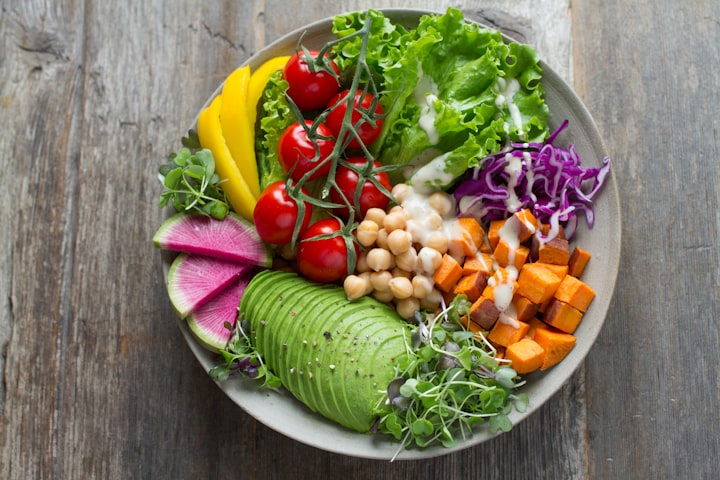Foods that are beneficial to cardiovascular health
Many lifestyle factors are linked to cognitive decline

As people's lifespans lengthen and more people live into their 80s and 90s, cognitive decline becomes a major worry. Cognitive decline has been linked to a variety of diseases, and the risk of mental decline has been linked to a variety of lifestyle variables, including poor food, obesity, and a sedentary lifestyle.
Many lifestyle factors, such as poor diet, obesity, and a sedentary lifestyle, are linked to cognitive decline.
Healthy diets, such as the Mediterranean diet, are, on the other hand, linked to lower incidence of Alzheimer's disease and cognitive decline. Plant polyphenols pass into the brain, where they can act as antioxidants and anti-inflammatory agents, lowering damaging processes that contribute to brain cell malfunction and loss. A plant-rich diet could have a direct impact on brain health.
Plant polyphenols can penetrate the brain and act as antioxidants and anti-inflammatory agents.
These are well-established links, but a recent 18-month study published in the American Journal of Clinical Nutrition sought to examine the link with a randomized controlled experiment. 224 patients with abdominal obesity (extra fat around the waistline) or abnormal lipid profiles (high cholesterol or triglycerides) participated in the trial, which was done at a remote location, the nuclear facility in Dimona, Israel, where lunch and exercise were given and monitored onsite.
Mediterranean plus
The volunteers were randomly assigned to one of three calorie restricted diets: a healthy dietary guidelines group receiving standard nutrition counseling, a Mediterranean diet group advised to follow a diet rich in vegetables, with chicken and fish replacing part of the red meat and supplanted with about an ounce of walnuts daily, and a Green Mediterranean diet group advised to avoid processed and red meat in addition to the Mediterranean diet instructions, and a Green Mediterranean diet group advised to avoid processed and red meat in addition to the Mediterranean diet instructions. In addition, all three groups received a free gym membership and similar physical activity advice.
The volume of the brain shrinks throughout time, as evidenced by brain imaging.
Brain volume decreases with time, as evidenced by brain imaging, and the individuals' brains were scanned before and after the intervention. The hippocampus, a brain region important in learning and memory, is one area of particular interest. Loss of volume in the hippocampus, which lies deep in the temporal lobe, is regarded a sensitive sign of brain degeneration, even before symptoms manifest.
The findings: After 18 months, brain atrophy was linked to the participants' age, with atrophy speeding up in those over 50 years old. The rate of atrophy, on the other hand, was reduced in both Mediterranean diet groups, particularly the Green Mediterranean diet group. The younger subjects showed the same protective effect.
Both Mediterranean diet groups, particularly the Green Mediterranean diet group, saw a reduction in the rate of brain atrophy.
Red and processed meat avoidance, as well as consumption of walnuts and "green" dietary components (Mankai and green tea), were linked to decreased hippocampal brain volume loss. Improvements in glucose tolerance, body weight, and blood pressure were also linked to decreased brain atrophy on MRIs, according to the researchers. Furthermore, urine polyphenol excretion, which reflects plant-food intake, was linked to brain volume retention.
Is it necessary for us to consume walnuts?
This 18-month intervention is shorter than a 4-year intervention research in 334 older persons, which found that a Mediterranean diet supplemented with olive oil and almonds enhanced cognition as measured by neuropsychological testing. Neuropsychological testing did not reveal any differences between the three groups in this study, which found a link between food and brain volume. These may take a little longer to manifest.
Is it necessary to consume these specific plant foods? The walnuts and Mankai that the participants were given were chosen for their high polyphenol content, but they're more of an example of the type of food pattern that helps to maintain a healthy brain than a specific recipe: "we cannot claim an effect of specific foods or nutrients," the authors say.
Polyphenol-rich foods include berries, herbs and spices, veggies like broccoli, chocolate, coffee, and tea, to name a few. The amount of polyphenols found in most plant foods varies depending on how the plant is cultivated, how the food is prepared, and a variety of other factors. Absorption of polyphenols varies as well.
This is why it's a good idea to consume a varied diet that's high in plant-based foods. You don't need to go on a superfood hunt because there are plenty of nutrient-dense vegetables that grow locally and are readily available.
There's no need to go on a superfood hunt because there are plenty of nutrient-dense plants that grow locally and are readily available.
These plant foods are beneficial to cardiovascular health, as well as protection against inflammation, diabetes, and cancer.





Comments
There are no comments for this story
Be the first to respond and start the conversation.